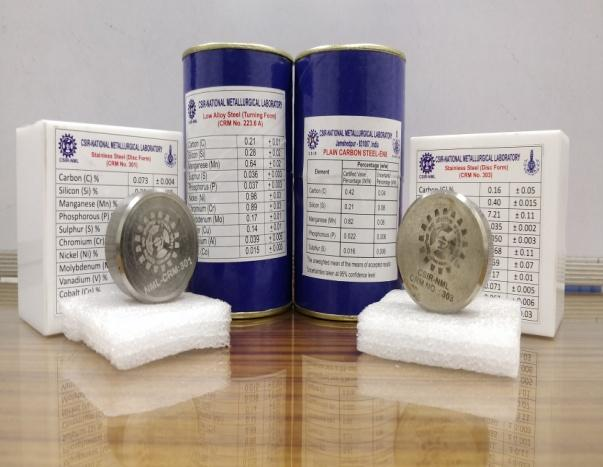Selecting the Ideal Chromatography Consumables & Solutions Provider
.png)

Chromatography is a crucial analytical technique used in laboratories across industries to separate, identify, and quantify components in a mixture. The quality of your chromatography results depends heavily on using the right consumables and solutions. Choosing the ideal chromatography consumables and solutions provider is key to ensuring accurate, reproducible results from your chromatographic analyses.
Key Considerations When Selecting a Chromatography Consumables & Solutions Provider
Selecting the right chromatography consumables and solutions provider is a crucial decision that impacts the quality of your analytical results. Carefully evaluate potential vendors against the following key criteria:
Quality and Consistency of Products

Source: Sigmaaldrich
Chromatography columns, vials, solvents, standards, and accessories must be manufactured consistently to the highest quality standards. Even minor variations in product quality can negatively affect separation efficiency, resolution, and reproducibility. Rigorously examine a supplier's quality control procedures, ISO certifications, regulatory compliance, lot testing data, and overall commitment to excellence. Tour their production facilities if possible to observe first-hand. Avoid vendors with quality lapses or frequent complaints about defective products.
Depth of Product Portfolio
Seek out providers that offer an extensive range of chromatography supplies for your technique, rather than a narrow specialty. For example, leading HPLC consumables suppliers will offer columns with diverse stationary phase chemistries (C18, C8, ion exchange, chiral, etc.), vials, mobile phases, standards, filters, autosampler parts, and accessories. This enables one-stop shopping and ensures all products are designed to work together optimally.
Technical Expertise and Support

Source: KGI
The ideal partner has specialized expertise in chromatography and provides informed guidance to optimize your analysis. They should assign you a dedicated technical support representative familiar with your application. Seek out suppliers with decades of experience across laboratory and industry settings. Ensure they offer complimentary services like method development, troubleshooting, preventive maintenance, and staff training.
Customization Capabilities

Source: Proxcys
Every laboratory has unique needs. Customization provides the flexibility to match consumables precisely to your application for superior results. For example, optimized column particle and pore sizes can enhance separation of complex samples. Explore the breadth of a supplier's custom manufacturing abilities for columns, mobile phases, vial kits, and beyond.
Reliable Order Fulfillment and Delivery
Adependable supply chain prevents downtime while awaiting shipments. Examine on-time delivery rates, order accuracy, and inventory levels. Suppliers with local warehousing often ship fastest. Review policies for handling backorders and shipping errors. Ask peers about reliability.
Value for Money

Source: Labmanager
Balance quality and performance with budget constraints. Cost alone should not drive decisions on critical consumables. However, excellent suppliers will offer competitive pricing through large-scale manufacturing. Review product catalogs in detail to compare costs across vendors for your required items.
Carefully weighing these criteria will lead you to a chromatography consumables partner dedicated to your laboratory's success through high-quality products and technical service.
Key Types of Chromatography Consumables and Solutions
Successfully performing chromatographic separations and analyses requires the right mix of high-quality consumable products and solutions. When selecting a consumables provider, ensure they offer a comprehensive range of chromatography supplies spanning:
HPLC Columns

Source: Agilent
The column is the heart of high performance liquid chromatography. Various stationary phases separate analytes based on polarity, charge, size, or chirality. Common phases include:
- Reverse Phase – Uses non-polar C18 or C8 bonded silica. Most widely used for separating non-polar to moderately polar compounds.
- Normal Phase – Polar stationary phase like silica or alumina for separating non-polar and polar compounds.
- Ion Exchange – Charged stationary phases separate ionic/ionic compounds and biomolecules based on charge.
- Size Exclusion – Porous particles separate by molecular size, ideal for polymers and large molecules.
- Chiral – Contains chiral selectors that separate enantiomeric compounds.
GC Columns

Gas chromatography depends on capillary columns coated with liquid stationary phases. Common phase chemistries include:
- 5% Phenyl Polysilphenylene-siloxane – Ideal for a wide range of organic compounds from C3 to C28+.
- 100% Dimethylpolysiloxane – Most popular and versatile GC phase for non-polar analytes. Stable up to 380°C.
- Wax phases – Polar wax-like phases for alcohols, acids, amines.
- Ionic liquids – Polar ionic liquid coatings for polar analytes, thermal stability up to 400°C.
Sample Vials

Autosampler vials contain samples for automated injection. Options:
- Glass vials – Inert with good solvent compatibility. Available in clear or amber.
- Polypropylene vials – Durable plastic vials resistant to breakage. Autoclavable.
- Threaded vials – Screw caps ensure secure closure.
- Crimp top vials – Aluminum caps crimped onto vials. Offer leak-proof sealing.
Mobile Phases

Source: Phenomenex
Mobile phases carry samples through the chromatography column. Key components:
- Water – Universal weak mobile phase component. Deionized water avoids interference.
- Organic solvents – Acetonitrile, methanol etc. adjust eluent strength. Miscible with water.
- Buffers – Phosphates, acetates, etc. control pH and ionic interactions.
- Ion pairing reagents – Enhance retention of ionic analytes. Common choices are TFA and HCOONH4.
Standards and Reagents

Source: HPLC Vials
Standards enable analyte identification and quantification:
- Individual standards – Single component references for specific analytes.
- Standard mixes – Combinations of standards for multi-analyte analysis.
- Internal standards – Spiked into samples to correct for errors.
Reagents like salts and buffers prepare samples and mobile phases.
Filtration Supplies

Membrane syringe filters and discs remove particles that damage columns:
- Syringe filters – Simple filtration using Luer-lock syringes.
- Filter discs – Larger volumes with reusable filtration units.
- Membrane materials – Nylon, PTFE, PVDF, regenerated cellulose.
- Pore sizes – 0.2 μm up to 1.5 μm for coarse filtration.
Vial Caps and Septa

Caps and septa secure chromatography samples and standards:
- Screw caps – Plastic caps thread onto vials. Eliminate need to crimp.
- Crimp caps – Leak proof seal from aluminum cap pressed onto vial.
- Septa – Silicone, PTFE or rubber liners in cap for needle penetration.
Autosampler Supplies

Autosamplers require replacement of wear parts:
- Sample syringes – Precision syringes that must be changed periodically.
- Needles – Stainless steel needles for consistent injection volumes.
- Loop inserts – Fixed volume sample loops for metering injections.
- Rheodyne valves – Valves and rotor seals for controlling sample flow.
This overview provides a solid foundation for evaluating the breadth and depth of a supplier's chromatography consumables selection.
Evaluating Chromatography Consumables and Solutions Providers
Evaluating Chromatography Consumables and Solutions Providers
Choosing the right partner for your laboratory's chromatography supplies demands careful due diligence across several criteria:
Define Must-Have Product Categories
Start by creating a detailed list of the chromatography columns, vials, solvents, accessories, and other consumables required for your analyses and techniques. This focuses the search on providers that can meet your key needs.
Research the Market and Shortlist Suppliers
Conduct thorough market research to identify suppliers offering your required product categories. Search industry directories, attend trade shows, and network with colleagues. Shortlist 4-5 vendors that fit your needs on paper for further evaluation.
Assess Product Quality and Consistency
Obtain product specifications, testing data, quality certifications, and sample products to critically evaluate consistency and adherence to quality procedures. Are products backed by meaningful warranties? What is their reputation for eliminating defects? Rank shortlisted suppliers on quality.
Compare Customization Capabilities
Consult with sales representatives about custom manufacturing capabilities for columns, vials, mobile phases etc. Can they tailor products to your specific application requirements? Assess their expertise and willingness to meet your unique needs.
Evaluate Technical Support and Services
Contact technical services with probing questions about products, applications, and services. Gauge the knowledge, experience, and communication skills of the support staff. Ask about complementary services like method development, preventive maintenance, and staff training.
Review Order Fulfillment and Delivery Performance
Discuss order turnaround times, delivery reliability, and responsiveness to backorders or shipping errors. Check online reviews related to service levels. Local warehousing often enables faster delivery.
Compare Value for Money
Review pricing catalogs in detail for your high-volume products. Weigh costs against quality – don't sacrifice on critical consumables. But excellent suppliers will offer competitive pricing through economies of scale.
Conduct Site Visits
Tour supplier facilities to view operations first-hand if possible. Observe manufacturing, quality control, warehousing, and technical/service departments. Discuss capabilities with different functions.
Request References
Ask suppliers for customer references to gain insight into their experience. Inquire about product quality, customization, technical support, delivery, service recovery and more.
With comprehensive due diligence across these key areas, you can confidently select the ideal chromatography consumables partner for your unique needs.
Partnering with a Premier Chromatography Supplies Provider
As a leader in chromatography products and services, IT Tech offers an unparalleled selection of high-quality consumables and solutions.
We manufacture our own proprietary brand of chromatography columns, standards, mobile phases, vials, and accessories. Our in-house R&D and quality control ensure the strictest standards for reliable performance.
Our expansive product catalog allows you to source all your chromatography supplies from a single trusted source. Our expert technical team assists in method development, troubleshooting, and optimizing your consumables selection.
We also offer extensive custom manufacturing capabilities. Our flexible production processes can customize chromatography columns and mobile phases tailored to your specific application needs.
Orders are fulfilled promptly and accurately from our large warehouse inventories. We have built a reputation for being a reliable partner to laboratories across multiple industries.
For high-quality chromatography consumables and solutions backed by technical expertise and personalized service, look no further than IT Tech. Contact our team today to evaluate our offerings!
Subscribe to our newsletter
Stay updated with IT-Tech Insights
Related posts
Check out other IT- Tech Scientific Resources

Selecting CRMs for your analytical method
Selecting the right CRMs (Certified Reference Materials) is a critical step in establishing a robust analytical method. This article provides insights into key factors to consider when choosing CRMs, including purity, traceability, and suitability for your specific application. Understanding the role of CRMs in quality control and method validation is essential for achieving accurate and reliable results. We discuss the importance of selecting CRMs from reputable suppliers who adhere to strict quality standards and provide comprehensive documentation. By carefully considering these factors, you can ensure that your chosen CRMs meet your specific needs and contribute to the overall success of your analytical workflow.

Multi-component standard mixes vs single standards
When conducting research, accurate calibration and validation are crucial. This often involves using chemical standards or certified reference materials (CRMs). Two common approaches are multi-component standard mixes and single standards. Multi-component mixes offer convenience and cost-effectiveness, while single standards provide greater flexibility and control. This article delves into the advantages and disadvantages of each approach, helping you determine the best option for your specific research needs. We discuss factors such as accuracy, traceability, and cost, providing insights to ensure reliable and accurate results in your experiments.

Understanding certified reference materials (CRMs)
Certified reference materials (CRMs) are highly characterized materials with known and certified properties. They play a crucial role in analytical chemistry by providing a reference point for calibrating instruments, validating analytical methods, and ensuring the accuracy of measurements. CRMs are essential for quality control, research, and regulatory compliance. This article explores the importance of CRMs, their different types, and how they contribute to reliable and accurate analytical results. Discover how IT tech can provide you with a comprehensive range of Chemical Standards & CRMs to meet your specific needs.

























































.png)








